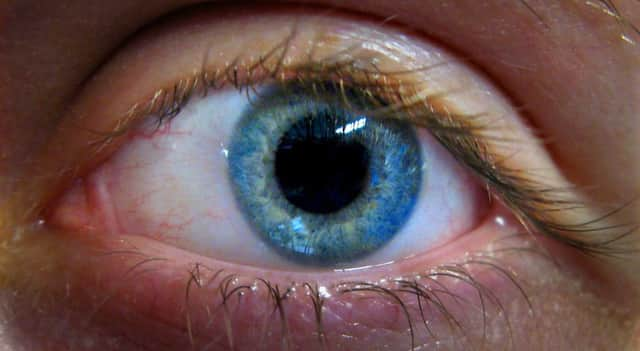Breakthrough in beating cause of adult blindness


The landmark procedure, which was carried out by Professor Lyndon Da Cruz on a woman at Moorfields Eye Hospital in London last month, involves growing a cluster of cells from a single embryo stem cell, which can be placed on to the eye.
Experts hope to be able to reverse blindness in people with age-related macular degeneration (AMD), which is the leading cause of blindness in adults.
Advertisement
Hide AdAdvertisement
Hide AdAMD affects a specific area of cells that are either damaged or completely missing. The new technique hopes to use cells grown in the lab to create a thin sheet that can line the inside of the eye.
Prof Da Cruz said: “The reason we are very excited is that we have been able to create these very specific cells and we have been able to transfer them to the patient.
“It’s the combination of being able to create the cells that are missing and demonstrate that we can safely transplant them.
“This has the potential to be a treatment rather than being theoretical proof.”
A study of ten patients with a form of the disease known as wet AMD has been launched and experts hope to extend the findings to patients with the more common form, dry AMD.
This is the first time experts have employed a “patch” technique using embryonic cells from donated embryos with the aim of reversing vision loss in patients.
Prof Da Cruz has started the trial with wet AMD patients because there is potential to restore their sight faster following sudden vision loss.
The study was hailed by experts as a major step forward for both a cure for blindness and the use of stem cells to treat disease.
Advertisement
Hide AdAdvertisement
Hide AdProfessor Chris Mason, professor of regenerative medicine at University College London, said: “This clinical trial is important for two reasons.
“Firstly, it is potentially a big step forward towards curing a major cause of blindness. Secondly, this study will enable a much better understanding of the use of embryonic stem cells to treat disease in general. If the AMD trials are successful, then by using embryonic stem cells as the starting material, the therapy can be affordably manufactured at large scale. This will enable all patients to benefit and not just be an expensive bespoke therapy for a select few.”
The operation is a milestone in the London Project to Cure Blindness, a partnership between Moorfields, UCL and the National Institute for Health Research.